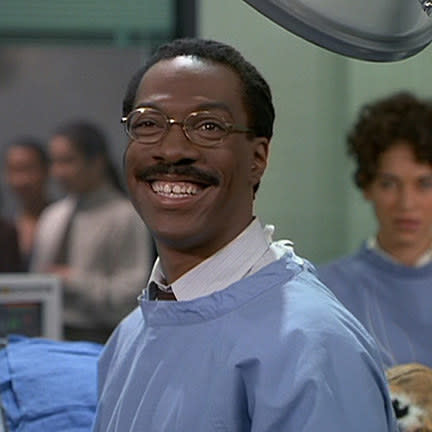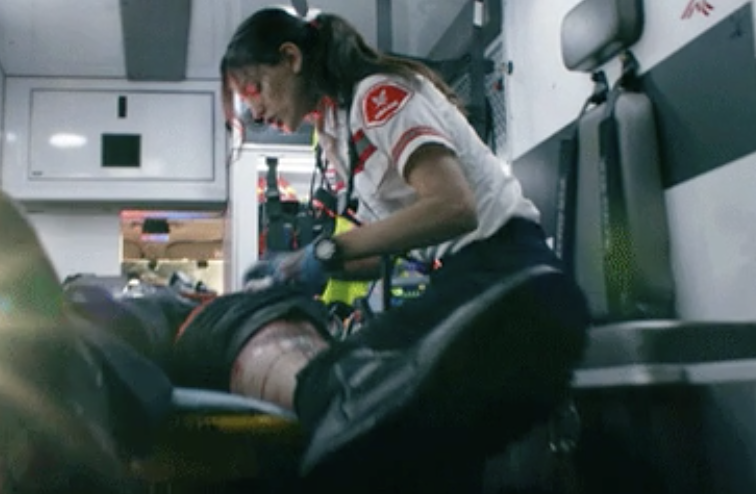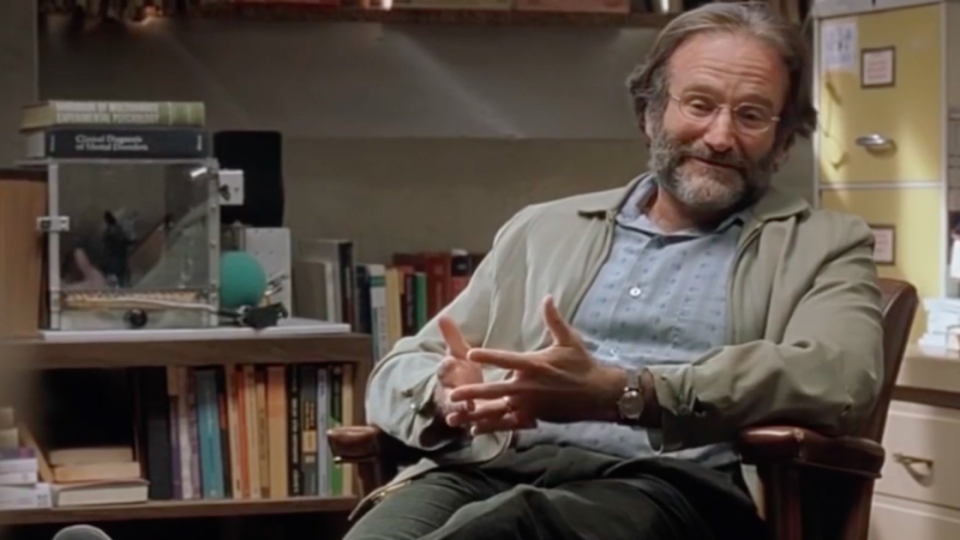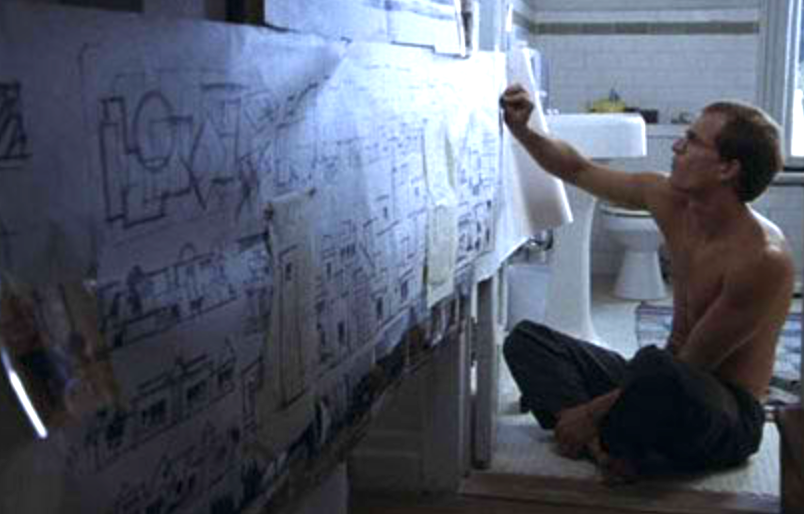People Are Sharing The "Trap" Careers That Seem Like They'd Be Awesome, But Are Total Hell In Reality
BuzzFeed
8 min read
There are certain careers that seem like a total dream from the outside — but according to the people who actually work these jobs, the advertised charms are often an illusion.
Starz
Reddit user u/Aisforacronym addressed this issue by asking the Redditsphere, "What careers seem promising, but are actually traps that people consistently waste their education opportunities on?" Here's what people said:
1."Real estate agents. There are more real estate agents than homes for sale in the US, according to the New York Times... It also has an extremely high failure rate in the first year because people get their license and realize the exam doesn't teach you how to be a good realtor — it teaches you how not to break the law and get sued."

DreamWorks
2."Any kind of artist, but in particular 3D (CG) artists. Tons of art schools popped up selling degrees to be a video game artist, or a chance to be an animator at Disney or something. It ended up over-saturating the market with low-quality portfolios that had no chance of ever getting into a major studio."

""
3."Veterinarian. It's the same debt of getting an MD for a fraction of the salary. It works if you don't have to pay for college and vet school, but not really logical if you do."

Universal
4."I do beekeeping, and while I find it very rewarding, it seems like a growing trend of a trap. There have been a ton of people who 'want to get into it' and probably spend like $400 on equipment/bees and are done with it after two years. You could buy a ton of honey for that price. Plus, hobby beekeepers are worrisome, because if they don't treat their bees properly, they can be a vector for disease."

Vice
5."The biggest scam is being a qualified librarian. For terrible pay, organizations want you to have a flipping master's in library science. If the jobs paid more, it would make sense, but it's absolutely ridiculous. To make matters worse, you can sneak your way into being a librarian through other ways, and still be paid what qualified people are paid."

Netflix
6."Working as an EMT or paramedic. The work is rewarding, but most companies are private and pay dog shit. Most of your money will be made on overtime, which is mostly forced due to understaffing. I did it for six years and completely burned out due to being overworked. Getting picked up by an FD or a state/city-run EMS program is different, and better in my opinion, but most people get stuck at a private company for too long."

Universal
7."A lot of nonprofits rely on your desire to do meaningful work to get away with some pretty exploitative labor practices. I’m sure it depends though, because it's obviously a really broad category."

HBO
8."The legal profession draws in a lot of people who got their picture either from TV series or by looking at one of the few successful lawyers. Those guys of course are in the spotlight — this is how they are successful. A successful lawyer must be very good at marketing. A large part of the training, though, is very theoretical and hard to comprehend. It can be fun, but mainly for the people who liked to have hour-long discussions about political or philosophical things with their friends when they were kids. Not for the people who just want to ‘look’ successful (fast car, fancy clothes, etc.) like the lawyers in the movies. For these guys, the training already is a trap. Secondly, the market in most countries is stuffed with bad lawyers. For the reason above, there are way too many people trying to make a living as lawyers, and way too few people who actually need a (bad) lawyer."

20th Century Studios
9."Any video game career. I wouldn't say any specialized degree is a waste, but it's completely unnecessary. Jobs are super competitive, so breaking in without experience is hard, and there are more and more candidates every year. One company I worked for said they rejected 5,000 resumes for a position they posted. If you are talented enough to get a job, you're talented enough to make two times more outside gaming. Stress, burnout, and divorce are super common in the field."

Artur Debat / Getty Images
10."Teaching in university/college. You have to do a PhD minimum, and consistently churn out new research materials. You'd have invested over a decade getting all the degrees, but jobs are scarce, so you end up being a temporary faculty for a few more years — doing the same or more amount of work for a fraction of the pay."

Paramount
11."Yoga teacher. I am still doing my yoga teacher training, but it is basically an MLM."

10'000 Hours / Getty Images
12."Theater — unless you are already wealthy and know people in a big city that can get you a position in a company. Everyone wants in — so much competition, but low pay. Bad hours, lots of travel, and basically begging for work. I could say more about the things that have disappointed me. There have been some fun moments and good people, but I wish I would have gotten a degree in something useful. Putting theatre design/production major on an application has never helped me."

20th Century Studios
13."Biotech and biotechnology. Long hours, low pay, and most of the work is extremely dull and monotonous relative to what I thought 'science' was. Also, not much in the way of transferable skills."

Longhua Liao / Getty Images
14."Psychology. I have six years of school under my belt, and I’ll need more to reach my end goal."

Miramax
15."Journalist. I started bartending in college to pay for the degree. Got it...and I'm still a bartender. You don't make money writing until you die. I had no interest in television news, so that was out. Plus, I live in DC. I got tired of the grind real quick."

Sony
16."Pilot. You have to take on $150K debt to train. There’s an oversupply of pilots in the West (and that was pre-COVID) so you generally end up at a crappy low-cost carrier earning surprisingly little and paying back that debt. You start off with little control over your hours and holidays. You compete with other pilots for the most attractive bases. Contracts are very one-sided, and redundancies are fairly common. It was a pretty sweet career for a while, and senior pilots still enjoy a lot of benefits. But to me, it just looked like a multi-decade grind of shift work and poor pay in some crap corner of the continent."

Paramount
17."Teacher. Yeah it’s nice to have summers off, but it's not worth working 7 a.m. to 7 p.m. every day — plus a few hours on the weekends — just to make 50K a year. Not to mention dealing with a bunch of whiny parents that don’t give a crap about their child’s education."

Paramount
18."Information Technology. It's less that you can't find work, but you never find work at your level, and everywhere I've ever worked (outside of the military) has people who only half know what they are doing. We are talking mistakes that someone on the lower levels of IT should be making."

Thomas Barwick / Getty Images
19."Structural engineering. The stress/responsibility is not worth the pay (if you design something and it falls down, it's on you). The expected hours are awful, so that you can deliver projects on time. Plus, you're expected to do a lot of the drawing work yourself now, rather than having a draughtsperson covering that for you."

Monty Rakusen / Getty Images/Image Source
20."Nursing school has to literally lie to students about what being on the floor in a hospital is like so that they don't run away."

Showtime
21."According to what I've seen with a woman I dated, architecture. Lots of hungry, driven kids come out of architecture school ready to make their mark on the world. The reality is that architects make little money while being pinched between developers, customers, and consultants. Everyone other than them makes the money, and they're expected to work crazy hours. Sounds pretty shitty to me."

Paramount
22."Being a chef. A lot of people spend a small fortune going to culinary school in order to work in a hot, stressful kitchen 70 hours a week, making a shitty salary that usually ends up being about the same rate as the line cooks and dishwashers make per hour. Long days, endless deadlines, back pain from being hunched over prepping stuff all day, cuts and burns all over your body… Not worth it, in my opinion."

Open Road Films
23.And, "Physical therapy. In the US it's a doctorate program, so on top of requiring a four-year undergrad degree, you need to complete three more years of graduate education. It's a high tuition, low salary for a doctorate, and most of the fillable positions are what we call 'patient mills.' Essentially, companies want to see as many patients as possible, reducing one-on-one time and reducing quality of care."

Westend61 / Getty Images/Westend61
Some submissions have been edited for length and/or clarity.